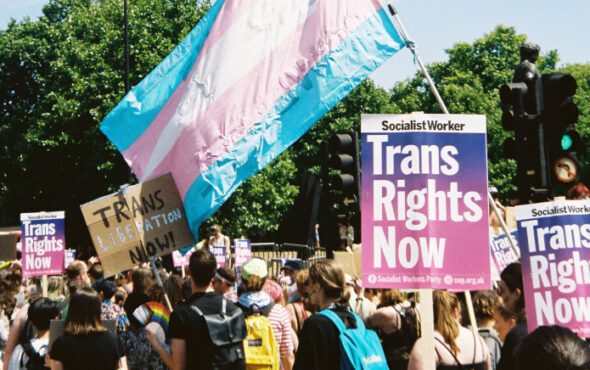
Europeans are moving ever closer to embracing equal rights for all despite a rise in anti-transgender rhetoric by many of their politicians, two studies found on Thursday.
According to the annual ILGA-Europe Rainbow Map and Index, the countries to record the greatest gains on trans rights are those that had introduced self-identification laws for trans people.
This removes the need for a lengthy medical consultation and diagnosis, and also lowers the cost of transition.
Adoption of self-ID laws came after many politicians had turned trans rights into the latest battleground in Europe’s so-called ‘culture wars’, a move of “political courage” applauded by the rights organisation behind the report.
Moldova jumped 14 places to rank 23rd out of 49 after the central European country introduced laws to protect sexual orientation and gender identity in many aspects of daily life.
At the other end of the scale, Armenia, Turkey and Azerbaijan ranked lowest, respectively, with Yerevan making a slight improvement after it scrapped its ban on blood donations by men who have sex with men.
Malta was ranked highest for the eighth year running.
Standing tall for trans rights
Prime Minister Viktor Orban of Hungary has frequently cast himself as a defender of traditional values against “LGBT ideology”.
Earlier this month, Orban gave a speech in which he compared the “woke movement and gender ideology” to “Communism and Marxism” and celebrated banning gender “propaganda” in schools.
ILGA-Europe’s executive director, Evelyne Paradis, said this year’s results showed that other politicians were ready to take a brave stance when it comes to human rights for trans people.
“We want to commend the level of political courage,” Paradis told Openly. “We saw what it takes to get laws through in countries like Spain and in Finland.”
In February, Spain passed a pro-LGBTQ+ law that included several measures such as the right for people to change their gender on legal documents without a medical diagnosis.
Finland introduced similar measures in the same month.
Paradis added a note of caution, however.
“The lived reality for more people is getting more complicated and in many places, it’s getting to be more violent and harsher,” she said.
“But politically, I think we do need to look beyond the headlines because too often it’s the headlines that grab the anti-LGBTI narrative and messages that capture the attention.”
The findings were backed by a similar survey by TGEU, a European network of trans rights organisations.
It said that “more countries improved protections and human rights for trans people in 2023 (including) Spain, Moldova, Andorra, Finland and Iceland”.
“Our data from the last 10 years show that legal protections for trans people are on an upward trajectory in many policy areas,” Freya Watkins, TGEU research officer, said in a statement.
“However, progress must come faster for the most marginalised trans communities, in particular trans youth, where rights are first to be restricted.”
Reporting by Hugo Greenhalgh.
GAY TIMES and Openly/Thomson Reuters Foundation are working together to deliver leading LGBTQ+ news to a global audience.



